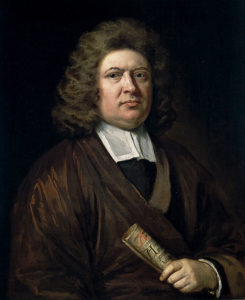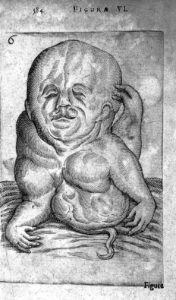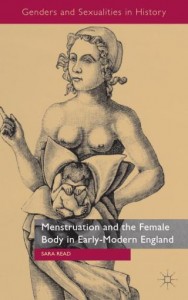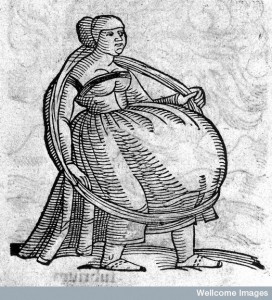Every year we aim to bring you a Christmas themed post. We have looked at Christmas Roses, Mince pies, and soon will be bringing you a suggestion for warding off Christmas over-indulgence. Today we bring you a story related to Christmas, although perhaps not one that embodies Christmas spirit.
This tale began in Christmas 1671 – not a happy one for Francis Culham and his family for quite suddenly he was stuck down with a ‘distemper’ which left him paralysed and ‘insensible’. Culham worked as a chirurgeon and had a good reputation both at sea and at home. He was living in the White Lion in South Lambeth.
It seems that Culham had begun having falls from August 1671 and suffered some concussion and humours flowing into his brain, which left him feeling quite melancholic. In what must have been a terrifying experience, and having just marked his 40th birthday since he was born on Christmas Day, 1631, Culham seems to have felt a creeping paralysis overcoming his body. He was soon paralysed and spent the first month in bed unable to take food save for a sip of syrup some mornings. At the end of the month he seemed to rally a little and could sometimes enjoy a good meal, before lapsing into his distemper again, during which time he would make awful howling noises. When he could eat, he did so ravenously and tore at his meat, and drank up to seven quarts of strong drink. When in the distemper he couldn’t recognise his wife or children, nor any of his many visitors but neither would he suffer himself being treated with any ‘internal’ medicine.
This situation continued for several years until the spring of 1676 when the patient was twice let blood (which the author of this accounts, says may or may not be significant in Culham’s recovery). On Friday 12th May 1676, at around 10 in the morning, Culham signaled for a pen and some paper and proceeded to write out a prayer which began:
Lord grant a Power from thy divine Nature.
I thought I saw the glorious appear unto me.
The prayers of all good people I desire.
I desire heavenly water, that I may thirst no more.

via
https://en.wikipedia.org/wiki/Thomas_Gale
This was observed by Dr Richard Parr, vicar of Camberwell, and Dr Thomas Gale the headmaster of St Paul’s School, who happened to be passing by was also invited to come and see the patient. Dr Gale asked a lot of questions about Culham including how he lived before his affliction, and but Culham could only cry and tremble in response. Prayers were said by all those assembled, and when the words ‘Glory be to the Father, to the Son, and to the Holy Ghost’, Culham answered in a loud clear voice ‘Glory be to God on High’, to the astonishment of all present. This was the beginning of his recovery and by answering questions it became clear his memory was fine. The next day he could walk about the chamber with just a little assistance. By the third day he could walk with a stick and his ‘Intelligence and Faculties’ were once again very clear. His wife’s conduct towards him in his illness was praised in the account, and she in turn testified to the truth of the events. As well as Richard Parr and Thomas Gale, (head of St Paul’s for 25 years from 1672, and fellow of the Royal Society from 1677), other signatories to the veracity of this miracle were Elias Ashmole (originally from Lichfield in Staffordshire but now resident in Lambeth) and several doctors of divinity. The story of this miracle obviously stayed with Thomas Gale, and he told it to the Royal Society in May 1682, where he testified that most of what had appeared in print about Culham was indeed true.
This curious story first appeared in a pamphlet published London in May 1676 entitled A Miraculous Recovery: The Dumb Man of Lambeth. The story continued to attract interest and Thomas Gale’s eldest son Roger in 1710 published his own version of the tale, which he claimed to have newly translated from his father’s notes: ‘A strange Relation of what happened to a Man at Lambeth; recorded in Lattin, [by] Dr. Thomas Gale, and translated by – Dr. Roger Gale, his eldest son, in the year 1710’.



